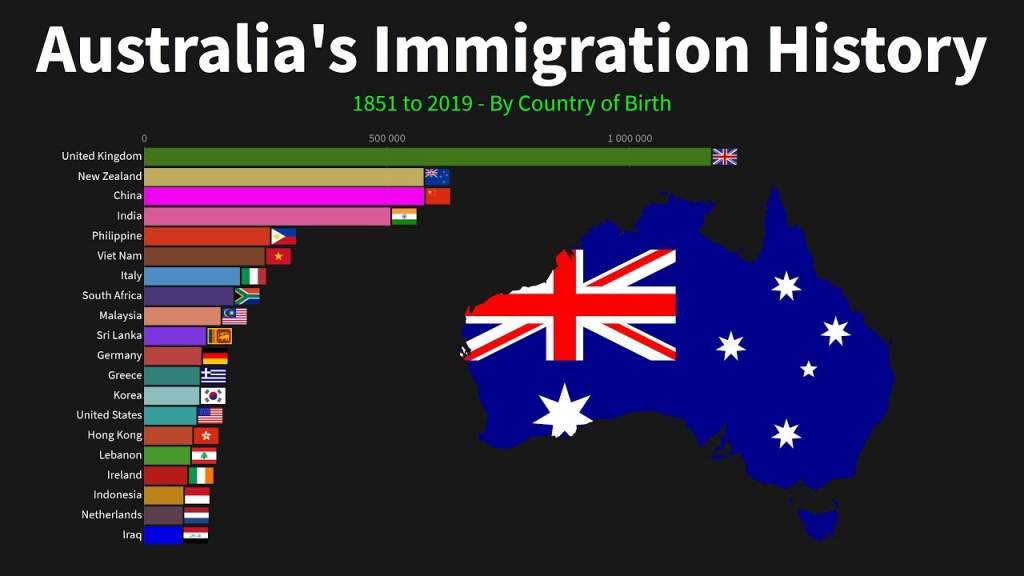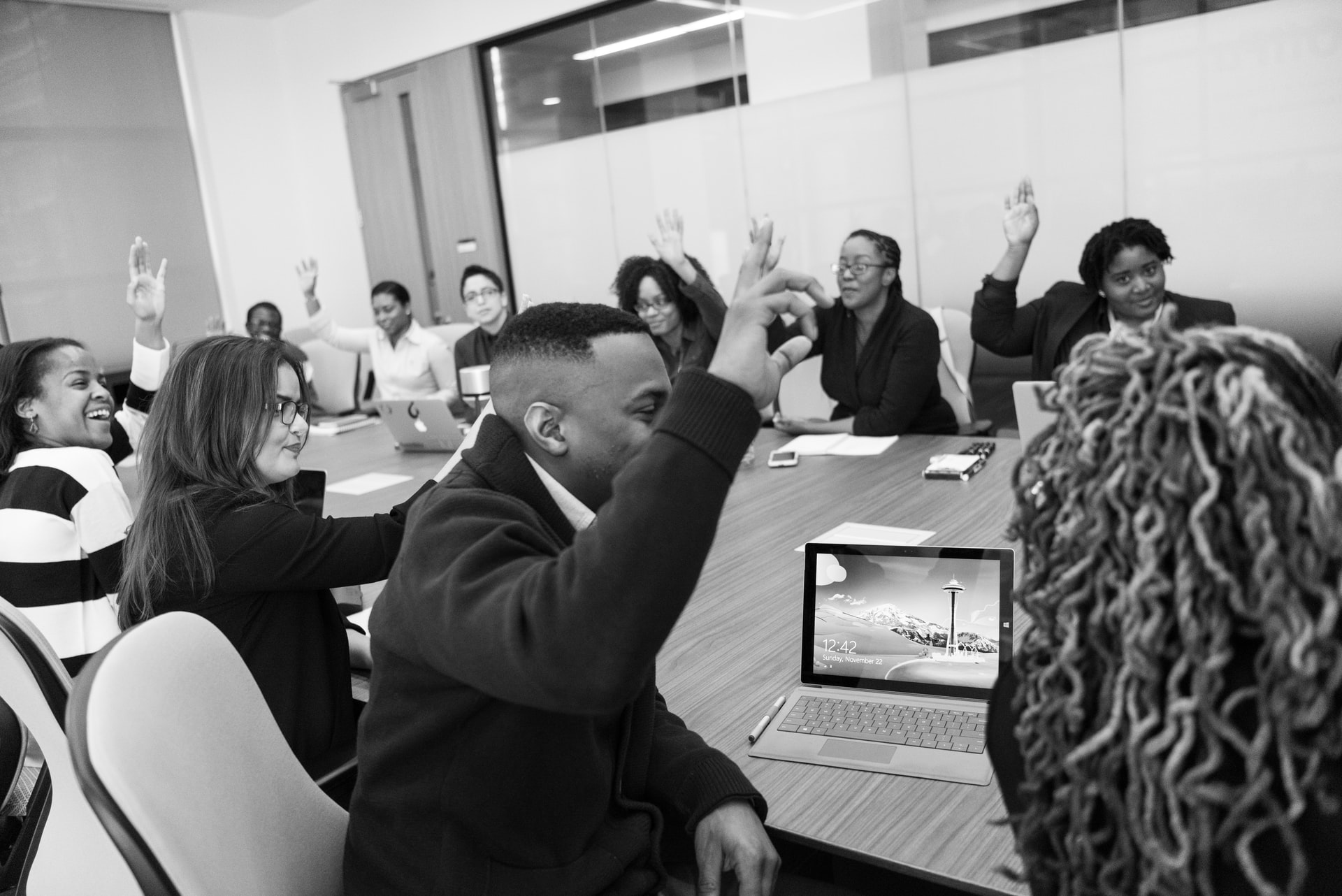The research on diversity and inclusion is conclusive and well-understood – it’s good for business, good for communities and good for our economy. So why do migrants face higher barriers to securing long-term professional employment in Australia? In this article, I explore these issues and give four reasons why I think migrants make excellent employees.
Good for business
Research presented HBR (2016) about the benefits of employing a culturally diverse workforce is conclusive – diverse teams are smarter. Why? Diverse groups are less subject to group think and are more innovative. When you think about it, it makes perfect sense –form a group of people who think differently and let each one bring their unique talents and perspectives to the table to discuss and solve problems.
A recent American survey found that 48% of companies with diversity at the senior management level improved their market share from the previous year, compared with only 33% companies with less diverse management. Another study showed that employers that place a high emphasis on diversity are 35% more likely to have financial returns above the industry median.
Good for Australia
According to the Australian National Census (2016), Australia is the most ethnically diverse country in the world.
“We can boast about the fact that Australia is the most ethnically diverse country in the world. With 26% of Australians being born overseas and 49% of people having at least one parent born overseas, Australia has 100 religions and 300 ethnic groups in our cultural melting pot.” (The Australian National Census 2016)
This level of migration has allowed us to develop a generally tolerant, multicultural society living in relative harmony.
Our Australian culture isn’t the only beneficiary. Migrants make enormous contribution to our national economy, providing a financial benefit of more than $10 billion in their first decade of settlement alone.
Barriers are High
So, if the benefits are clear, why are so many migrants under-employed or unemployed?
The Parliamentary Inquiry Into Migration and Multiculturalism in Australia received a wealth of evidence discussing the barriers faced by first and second generation migrants and refugees attempting to gain employment in the Australian workplace. These include:
- igrants’ skills, qualifications and experienced gained overseas not recognised in Australian workplaces
- Employers mandate for Australian work experience
- Direct and/or systematic racism and discrimination (despite Australia’s anti-discrimination laws)
Founder & CEO Professional Migrant Women, Fabiola Campbell, believes the lack of Australian work experience is the biggest barrier migrants face.
“Ignorance is one of the biggest issues. If employers don’t recognise the name of the company you worked for or if they don’t understand the impact of your work, they don’t trust the experience you gained working overseas,” said Ms Campbell.
But she also recognises building trust is a two-way street. She encourages migrants to put themselves out there and build a professional network.
“I’m no expert but when it comes to diversity, the key is curiosity. If there was one thing I’ve learned, you go further when you ask more questions. Everyone has a story to tell,” said Ms Campbell.
Employers Opening Doors
With international borders closed due to COVID, many employers are finding it hard to recruit the talent they need. Work experience programs for migrants may be one way to tap into a hidden talent pool.
Organisations, such as Professional Migrant Women, offer programs to give migrants work experience. CEO, Fabiola Campbell says this gives migrant workers a chance to contextualise work in Australia.
“When I worked in Venezuela, I organised many things for my company but I didn’t call it project management. That kind of work language wasn’t in my vocabulary. Then, when I gained work experience in Australia, I understood what I was doing was project management,” said Ms Campbell.

Personal Experience
As the son of Italian migrants, I have a deep understanding and empathy for the challenges they face.
As a career coach, I regularly work with professionals who have migrated to Australia for a better life. They are here as Australian citizens or permanent residents, often with university qualifications and excellent work experience but who are either significantly under-employed or unemployed.
I often hear businesses talk about bring in migrant workers on a working visa arrangement while ignoring the new Australian citizens or permanent resident migrants who have moved to Australia as a life choice or as a refugee.
This got me thinking about the many benefits of employing migrants and also how I can connect employers to this untapped talent pool. Here are my four reasons why I believe Australian organisations should hire more migrants.
1. Positive Growth Mindset
A growth mindset is a belief that you have the capacity to adapt, improvise and overcome challenges through learning, dedication and hard work. This view on life creates a love of learning and a resilience that is essential for great accomplishment (Dweck, 2015).
The traits of a growth mindset include:
- intelligence
- adaptability
- resilience
- commitment to growth, learning & continuous improvement
- a positive outlook
- embracing challenge
- grit & determination
Add to this list the courage to leave your country, family, culture and known way of life for the unknown of moving to a new country for a better life. This mindset drives their desire to achieve and succeed.
These are the sort of traits you look for in your successful employee so why wouldn’t you employ a migrant worker who naturally come with these character traits? Consider how these traits can drive productivity and underpin success in your business.
2. Commitment, Loyalty, Hard Work
My coaching experience with migrant workers is that they exhibit a strong sense of loyalty to their employer. On countless occasions I have heard migrant workers say, “I work hard, and I am loyal because (business name) gave me a chance to work.”
Generally, migrant workers define career success in terms of loyalty, long term commitment, and career elevation rather than maximum financial return. Migrant workers often have a mindset that they want to build a legacy for their family and their community. Therefore, they are much less likely to “job hop” for a few extra dollars at every opportunity.
3. Creativity & Innovation
Migrant workers have different work and life experiences which helps them see challenges in Australian organisations through a fresh perspective. They can bring a different lens to your business problems that by definition you would not have thought about.
A great example of this is the positive financial impact Lean Business Principles has had on many Australian businesses. These principles were originally developed and implemented in Japan. It’s through migration (and the exchange of ideas) that we have been able to implement lean business principles in many Australian businesses.
4. A Pool of Qualified Professionals
The migrant community I work with are often telling me about how job opportunities are publicised through their community. Migrants feel a responsibility to support each other to move forward because if one of them moves forward so does the whole community. Hence, when a job becomes available in their work force, they are very likely to share that information with family and community members. This gives employers a resource pool of potential employees.
If you accept the premise that “like attracts like” then as an employer you have a strong chance of finding a “like employee” from a high performing migrant’s community network.
Imagine the positive impact on your business if you had direct access to people just like your high performing migrant worker!
Australia has a long history of migration. Aside from our first nations people, we are all migrants. Migrants bring diverse professional and personal skillsets that Australia needs complete in a global economy. Diverse teams spark innovation, which leads to more profitable and sustainable business growth. We need to create opportunities for migrant professionals and employers connect, for everyone’s benefit.
Want to know more?
Read:
- Why Diverse Teams are Smarter
- Scanlon Mapping Social Cohesion Summary Report 2010
- Australian Parliamentary Inquiry Into Migration and Multiculturalism in Australia
- Billion-dollar hit: The barriers skilled migrants face in finding jobs at their full capacity, and the economic cost
Watch
- The Power of Yet (Carol Dweck)
Feature photo by Christina @ wocintechchat.com on Unsplash

